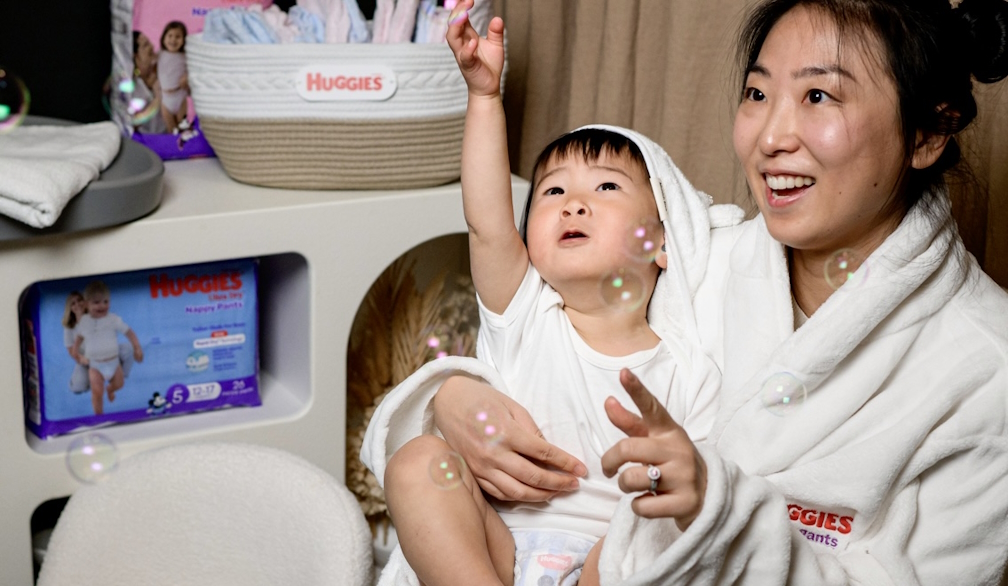How having a baby makes it more likely Australian couples rely on the man’s income
- Written by Francisco Perales, Adjunct Associate Professor, School of Social Science, The University of Queensland

Australian women are better educated than men[1] but still face poorer job prospects and lower incomes.
We see this in Australia’s stubbornly persistent gender pay gap[2] – estimated at nearly 22%.
Our research shows[3] how having children plays a significant part[4] establishing and maintaining these inequalities.
What we studied
We looked at how household earnings in Australia have changed over the past two decades. We also examined the degree of women’s economic dependence on their partners, especially after childbirth.
To do this, we modelled longitudinal data from the Household, Income and Labour Dynamics in Australia (HILDA[5]) Survey.
From this large, nationally representative dataset we looked at the household “breadwinning arrangements” of 8,570 heterosexual Australian couples.
We differentiated between male-breadwinning households (where women contributed less than 40% of labour income), equal-earnings households (women contributed 40% to 60%) and female-breadwinning households (women contributed more than 60%).
We then tracked the share of couples in each of these household categories every year between 2001 and 2019 (the most recent survey year available).
For the 1,379 couples who had their first child during the 20-year study period, we compared partners’ income contributions to the household in each of the ten years before becoming parents and the ten years after.
This analysis revealed the impact parenthood has on traditional earning roles.
What we found
Household breadwinning arrangements are slowly moving towards gender parity, according to our initial findings. This is shown by a growth in equal earnings households and fall in households where men contributed the most.
However, households where men earn the most still dominate. In 2019, they accounted for 54% of Australian households – compared to 29% of those where earnings were equal and 17% where women were the biggest contributors.
Our research found the transition to parenthood is a key cause of this gender imbalance. Having a child increased the likelihood couples relied on the male partners’ income and reduced the chance of equal-earnings arrangements.
For example, the percentage of equal-earnings households dropped from 45% in the year before parenthood to 19% two years after. In contrast, male-breadwinning households accounted for 40% of all households in the year before parenthood, but a much larger 71% two years after.
Importantly, we found little evidence of a return to pre-parenthood arrangements a decade after couples had their first child.
By that point, 56% of households relied on the man’s earnings, 20% on the woman’s and 24% contributed equally. These results underscore the long-lasting impacts parenthood has on women’s financial and economic independence.
Our findings mirror claims from decades of feminist scholarship showing couples often revert to traditional gender roles when they become parents. This is evident in both attitudes[6] and behaviours[7].
Such shifts are motivated by personal beliefs about who should look after the children and by broader workplace and government policies. This might include a lack of workplace flexibility or expensive child care discouraging mothers from taking on paid employment.
Breaking the cycle
The federal government last year announced a plan[8] to end gender inequality, including violence against women, the unequal sharing of domestic and care work and the under-representation of women in leadership. Central to this was promoting women’s economic security and independence.
Our research shows achieving this goal requires careful consideration of how parenthood affects households’ financial arrangements. It reveals that, under current policies, childbirth marks the start of a long period of economic dependence and insecurity for Australian women.
Fairer paternity leave schemes, tax incentives for two income households and tougher legislation protecting working mothers against discrimination would help ensure[9] women’s job prospects do not worsen upon motherhood.
Becoming parents represents a cherished and transformative event for many couples. But it doesn’t have to see a deterioration in women’s employment and finances.
References
- ^ better educated than men (www.spre.com.au)
- ^ gender pay gap (www.wgea.gov.au)
- ^ research shows (onlinelibrary.wiley.com)
- ^ plays a significant part (ajle.org)
- ^ HILDA (melbourneinstitute.unimelb.edu.au)
- ^ attitudes (academic.oup.com)
- ^ behaviours (onlinelibrary.wiley.com)
- ^ announced a plan (www.pmc.gov.au)
- ^ would help ensure (www.dss.gov.au)



















